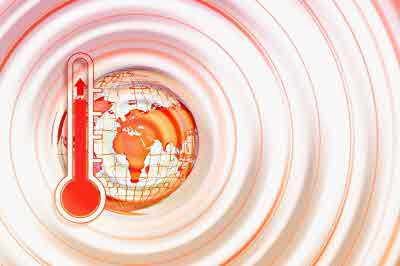The Dangers of Heat-Related Illnesses
As the average temperature rises in the summer, the risk of heat-related illnesses is increasing. Every year, there are many cases of heatstroke, so it is important to be aware of the dangers.
Warning Signs of Heat-Related Illnesses
Heat-related illnesses are acute conditions that occur due to prolonged exposure to hot environments. Symptoms include headaches, dizziness, muscle cramps, fatigue, and even loss of consciousness. These conditions can be life-threatening, with heatstroke and heat exhaustion being the most common.
Avoid Outdoor Work During Heatwaves
Minimize outdoor work and activities between 12 PM and 5 PM, which are the hottest hours. Stay in cool places and take precautions to avoid excessive heat exposure. The occurrence of heat-related illnesses is significantly higher during this time, so extra caution is necessary.
The elderly, children, and students need to be especially careful.
Elderly people should be especially careful of heatstroke. Elderly people have a weakened ability to regulate body temperature, making them more vulnerable to heatstroke. Appropriate prevention and caution are needed.
Emergency Measures for Heat-Related Illnesses
If the person is conscious, move them to a cool place, loosen their clothes as much as possible, and cool their body to lower their temperature. Encourage them to drink plenty of fluids, and if their symptoms do not improve, call 911 and report an emergency.
In case of unconsciousness, call 911 first and then move the person to a cool area. Loosen their clothing and cool their body to lower the body temperature. Once the ambulance arrives, they should be transported to the hospital.

Stay Healthy During Heatwaves
1. Reduce body temperature
Stay cool during hot summer days by taking frequent showers and wearing loose, light-colored clothing. This helps lower your body temperature and maintain comfort. Additionally, wear a hat or use an umbrella to protect yourself from direct sunlight when going outside.
2. Stay Hydrated
Water should be consumed regularly to prevent heat-related illnesses. It is important to drink water often, even if you are not thirsty, to provide your body with the proper amount of fluids. However, kidney patients should consult with a doctor before deciding how to consume water.
3. Limit Activities During Hot Hours
Between 12 PM and 5 PM, which are the hottest hours, refrain from outdoor work and excessive physical activities. Adjust your activity level and stay in cool places to minimize the rise in body temperature.
By following these practical tips, you can protect yourself from heat-related illnesses and have a healthy summer!
♣ Good articles to read together
https://lusellon.com/heat-wave/
♣ See other articles on health : https://lusellon.com/tag/health/
♣ See other articles on informative : https://lusellon.com/tag/informative/

